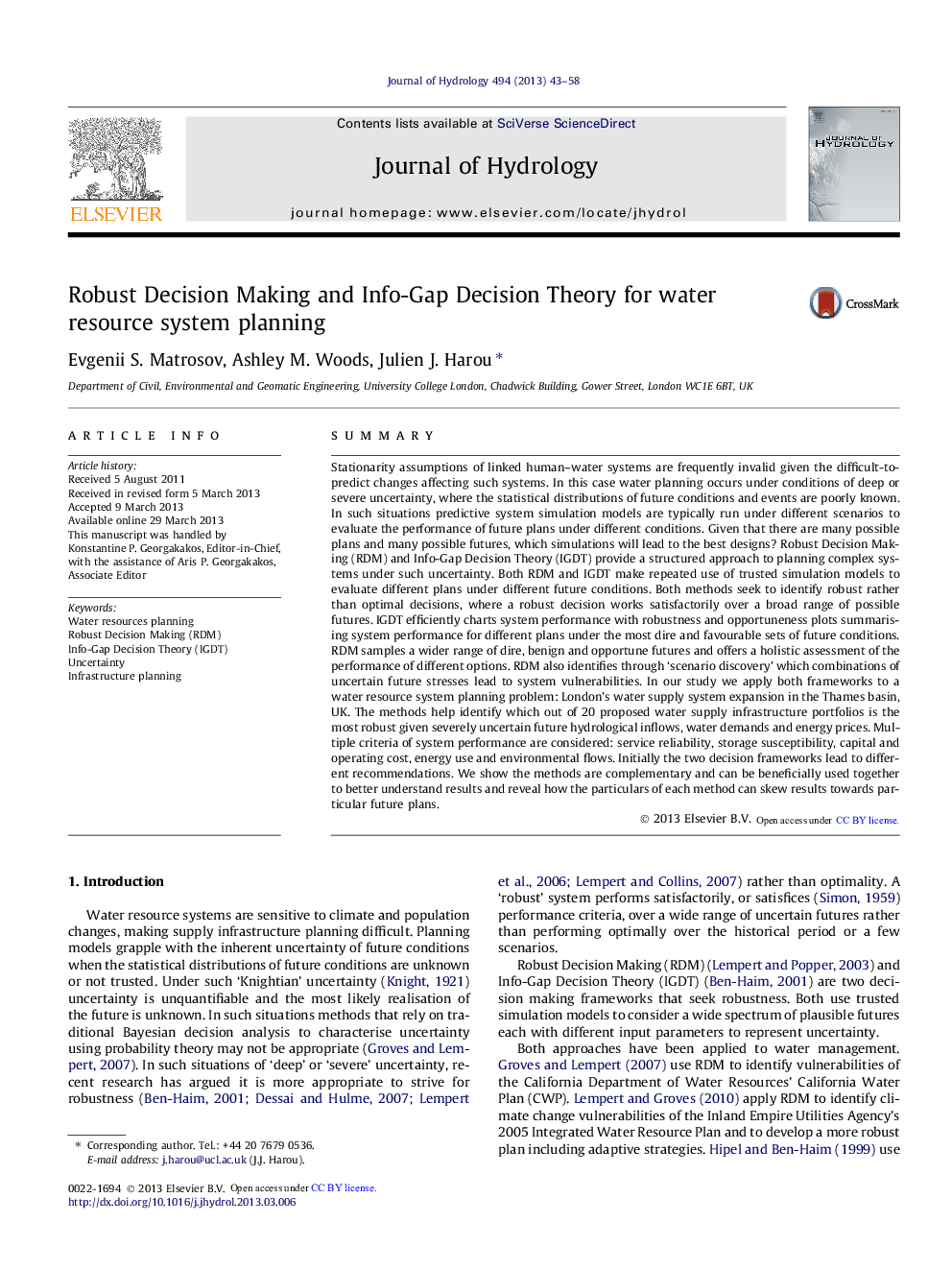| کد مقاله | کد نشریه | سال انتشار | مقاله انگلیسی | نسخه تمام متن |
|---|---|---|---|---|
| 6413757 | 1629954 | 2013 | 16 صفحه PDF | دانلود رایگان |
- IGDT and RDM are complementary methods for planning under uncertainty.
- We provide the first joint application of the two methods to water resources planning.
- Joint use provides more insights into how proposed plans will perform in an uncertain future.
SummaryStationarity assumptions of linked human-water systems are frequently invalid given the difficult-to-predict changes affecting such systems. In this case water planning occurs under conditions of deep or severe uncertainty, where the statistical distributions of future conditions and events are poorly known. In such situations predictive system simulation models are typically run under different scenarios to evaluate the performance of future plans under different conditions. Given that there are many possible plans and many possible futures, which simulations will lead to the best designs? Robust Decision Making (RDM) and Info-Gap Decision Theory (IGDT) provide a structured approach to planning complex systems under such uncertainty. Both RDM and IGDT make repeated use of trusted simulation models to evaluate different plans under different future conditions. Both methods seek to identify robust rather than optimal decisions, where a robust decision works satisfactorily over a broad range of possible futures. IGDT efficiently charts system performance with robustness and opportuneness plots summarising system performance for different plans under the most dire and favourable sets of future conditions. RDM samples a wider range of dire, benign and opportune futures and offers a holistic assessment of the performance of different options. RDM also identifies through 'scenario discovery' which combinations of uncertain future stresses lead to system vulnerabilities. In our study we apply both frameworks to a water resource system planning problem: London's water supply system expansion in the Thames basin, UK. The methods help identify which out of 20 proposed water supply infrastructure portfolios is the most robust given severely uncertain future hydrological inflows, water demands and energy prices. Multiple criteria of system performance are considered: service reliability, storage susceptibility, capital and operating cost, energy use and environmental flows. Initially the two decision frameworks lead to different recommendations. We show the methods are complementary and can be beneficially used together to better understand results and reveal how the particulars of each method can skew results towards particular future plans.
Journal: Journal of Hydrology - Volume 494, 28 June 2013, Pages 43-58
